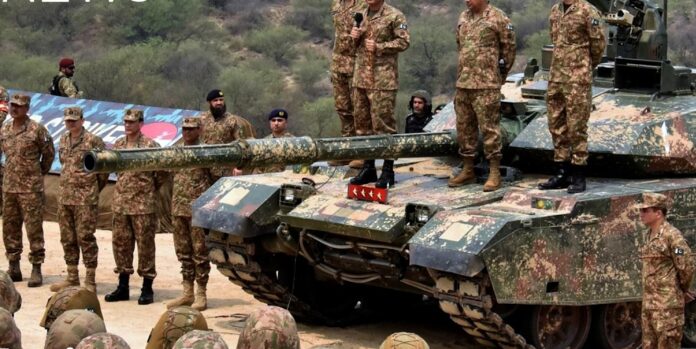Moeed Yusuf warns that a deadly Kashmir attack and tit-for-tat moves could spark a crisis escalation.
Pakistan’s former national security adviser Moeed Yusuf has issued a stark warning over rising tensions with India, cautioning that a lack of formal crisis management mechanisms could lead to dangerous miscalculations—despite his belief that a full-scale war remains unlikely.
Eleven days after a deadly shooting in Indian-administered Kashmir’s Pahalgam left 26 people dead, regional relations have deteriorated rapidly. The April 22 attack has triggered a string of retaliatory measures between the nuclear-armed rivals, including diplomatic expulsions, threats to abandon key treaties, and military posturing along the Line of Control (LoC).
India swiftly suspended its participation in the Indus Waters Treaty—an essential water-sharing agreement with Pakistan—while Islamabad has hinted at walking away from the Simla Agreement, which governs LoC recognition. Both sides have scaled back diplomatic ties and traded cross-border fire, raising fears of another military confrontation like the 2019 Pulwama episode.
Speaking to Al Jazeera, Yusuf, who served as NSA from May 2021 to April 2022 and now heads Beaconhouse National University in Lahore, said the absence of a bilateral crisis protocol between India and Pakistan leaves both countries dangerously exposed during escalations.
“India and Pakistan have for long struggled in terms of crisis management,” Yusuf explained. “They don’t have a bilateral mechanism—that’s the fundamental concern. They’ve always relied on third parties to de-escalate tensions.”
This time, however, Yusuf said India’s usual diplomatic playbook hasn’t worked. “They expected support from third-party states, particularly the United States, but didn’t get the backing they’d hoped for,” he said. “President Trump’s recent comments show a clear hands-off approach, putting the onus on both countries to resolve it themselves.”
Yusuf believes the tit-for-tat pattern between India and Pakistan has become increasingly entrenched and more severe. “These steps are easy to initiate but hard to reverse. Over time, each crisis ratchets things higher—suspending the Indus Waters Treaty, for instance, is illegal and unprecedented.”
Still, Yusuf does not believe war is inevitable. “The window where an Indian strike seemed imminent has passed,” he said. “That said, military action remains plausible. In moments like this, misreads are common. What looks like preparation for attack could be routine movement—or vice versa.”
He added: “Pakistan has to demonstrate it’s ready for any scenario. You can’t afford not to.”
Yusuf pointed out that previous flare-ups, including Kargil in 1999 and Balakot in 2019, were tempered by external pressure. He stressed the role of third-party intervention—especially from Washington.
“My book Brokering Peace outlines this exact dynamic. Since Kargil, the U.S. has led crisis mediation. Everyone else—China, the Gulf states—follows that lead.”
The former adviser said the United States’ historical role as de-escalator remains critical, even as it appears more reluctant to intervene directly. “It’s embedded in both India and Pakistan’s calculus—at the eleventh hour, America will step in to pull the plug.”
Pakistan’s diplomatic efforts reflect this belief. Prime Minister Shehbaz Sharif has met envoys from China, Saudi Arabia, and the UAE, asking allies to pressure India into dialogue. Meanwhile, U.S. Secretary of State Marco Rubio and Defence Secretary Pete Hegseth have both reached out to regional leaders to urge restraint.
Despite the danger, Yusuf insists both countries want to avoid open war. “They both want off-ramps. It’s just a question of whether they find one before it’s too late
